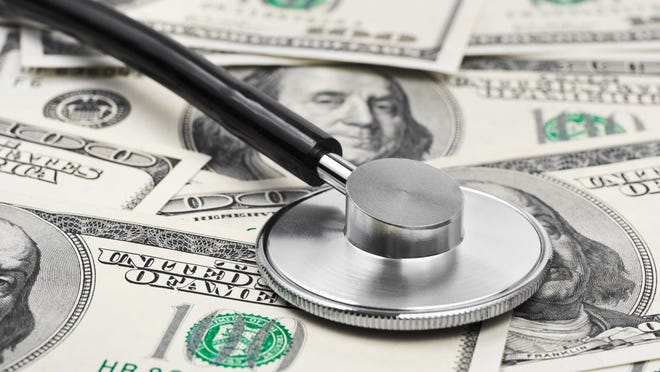In today’s workplace, it’s common for employers to offer individuals either a Flexible Spending Account (FSA) or a Health Savings Account (HSA). But given the similarity in the acronyms, what’s also common is for people to confuse the two.

Both FSAs and HSAs serve as tools to save for medical expenses and reduce taxable income. While they have some similarities, like being able to contribute pre-tax dollars and allowing for the payment of medical expenses, there’s one key difference that often trips people up – the timeline during which they must spend down their FSA.
Unlike HSAs, which allow you to roll over unused funds year after year, FSAs typically require you to spend down the account balance by year-end. Although some employers offer a grace period, to keep them straight, it’s best to remember that FSAs must be spent by the end of the year. Not doing so means forfeiting those funds.
More:Personal finance: Ask these questions before giving financial gifts
Yet as the year draws to a close, many people are unsure what to do with their remaining FSA dollars. So here are a few easy and practical ways to spend down your Flexible Spending Account by year-end:
Over-the-counter products: These are allowable as an expense. Things like Tylenol, ibuprofen, and allergy medications can all be purchased using your FSA. Many stores like Walgreens now tag “OTC” items so you know which items fall into that category, but Amazon and Walmart have gone one step further. Their websites have an “FSA & HSA Shop” where you can stock up on household essentials without using after-tax dollars to do so.
Scheduled medical appointments: If there’s an eye doctor or dentist appointment you’ve been putting off, now is the time. Those are generally covered as an FSA expense. Even better news – if your prescription has changed, those new glasses or contacts are also covered as vision care expenses.
Hearing aids: For anyone depending on hearing aids, FSA dollars are a great way to keep costs down on maintenance, batteries, or new devices.
Feminine hygiene products: While the notorious “pink tax” (the sales tax charged by some states on feminine products) hasn’t gone anywhere, these items can be purchased through an FSA to help preserve your hard-earned dollars.
Medical equipment and batteries: Devices such as blood pressure monitors, thermometers, or even wheelchairs can be covered. If you don’t need the equipment replaced, you can stock up on the batteries that keep the equipment running.
Besides the mentioned tips, many people are unaware that some fitness programs or physical therapy sessions might also be FSA-eligible if prescribed by a physician for a specific ailment or condition.
These straightforward tips can help ensure you’re not losing money in a Flexible Spending Account. You should also look into your employers’ specific rules to see if they offer a grace period. If you ever need clarification on the rules or need guidance on your specific FSA, consider consulting a professional who is well-versed in health savings accounts.
At CapWealth, we’re dedicated to providing our clients with the knowledge and tools they need to make sound financial decisions. If you need an adviser to guide you through your company benefits, don’t hesitate to reach out. We’re here to help you navigate these sometimes confusing topics.

Hillary Stalker, CFP, is an executive vice president and financial adviser at CapWealth. For more information, visit capwealthgroup.com.
